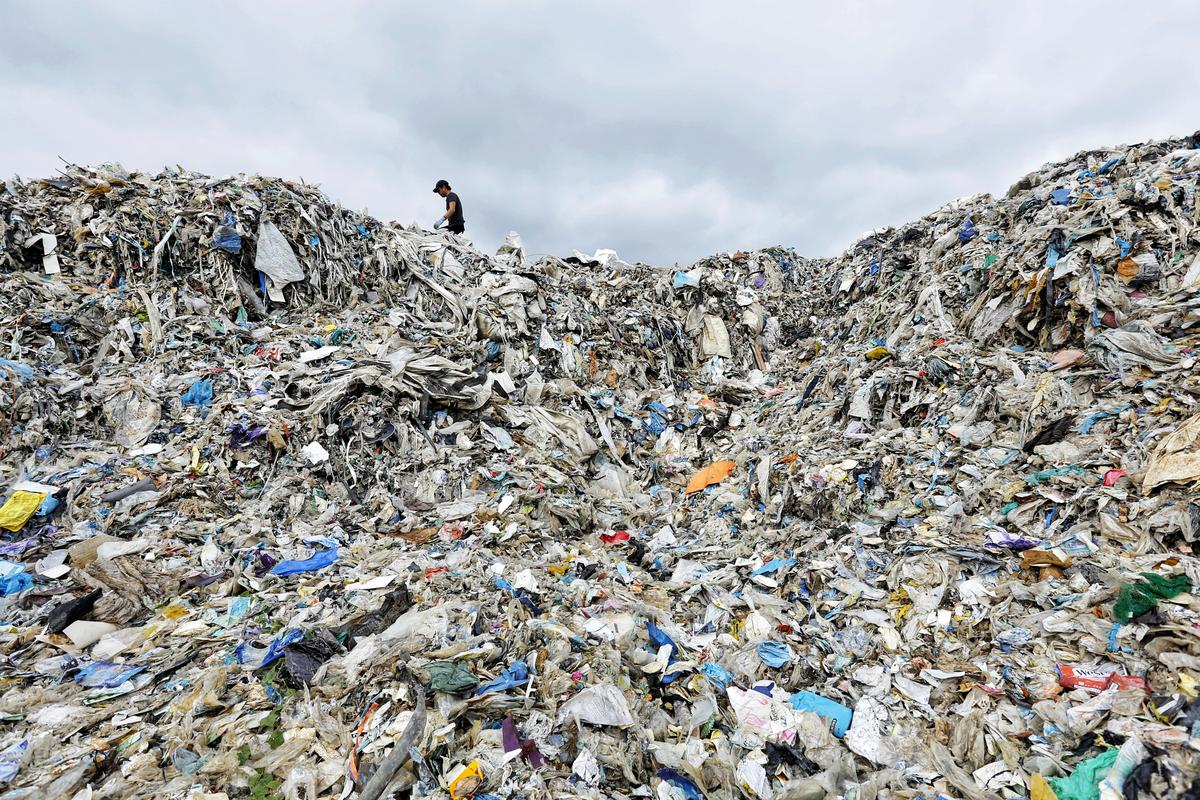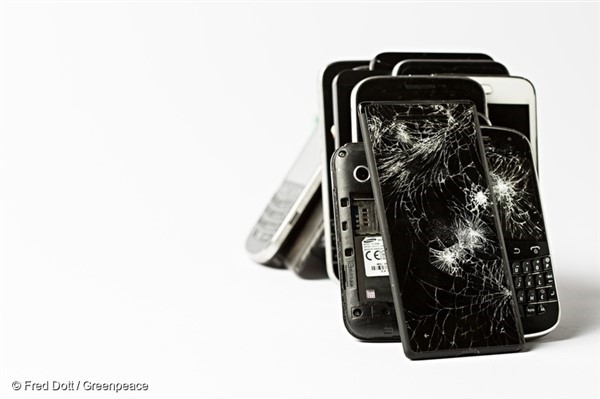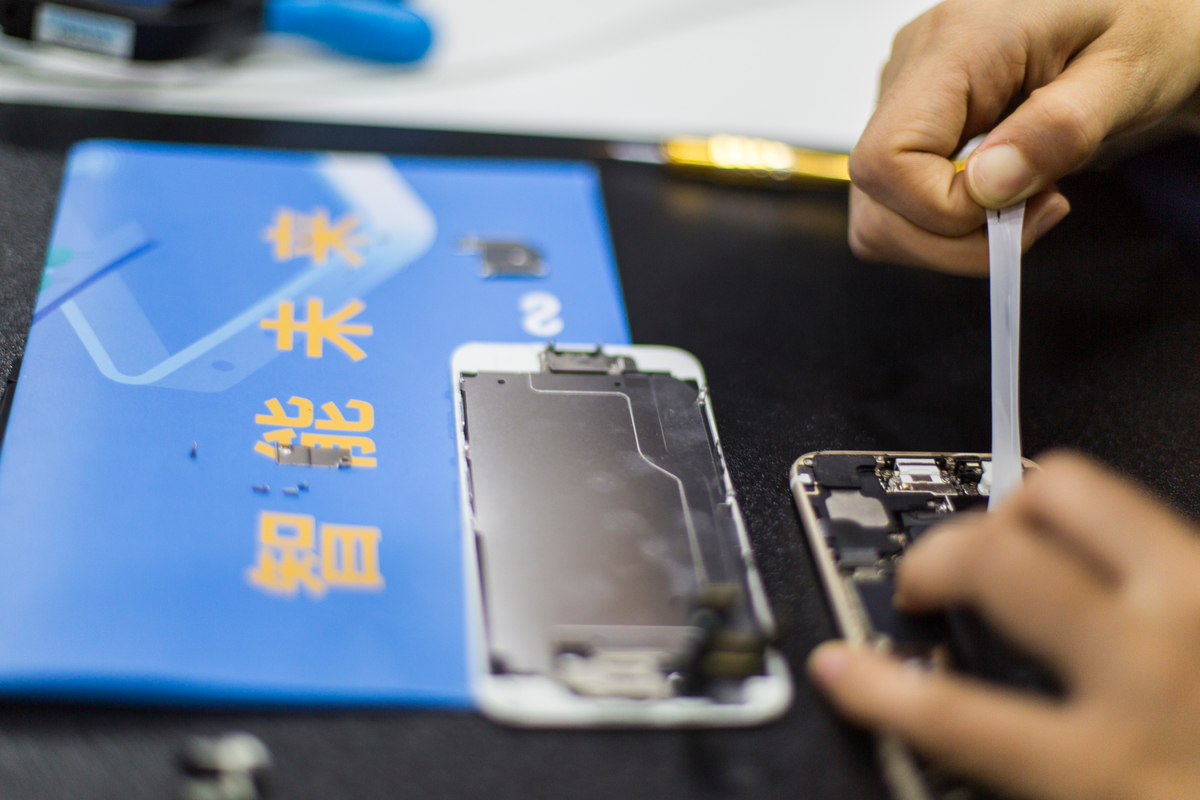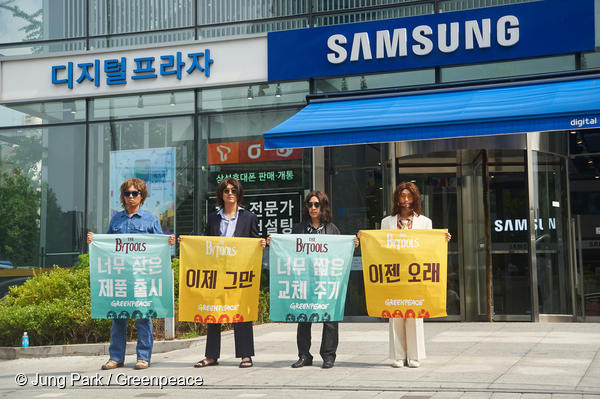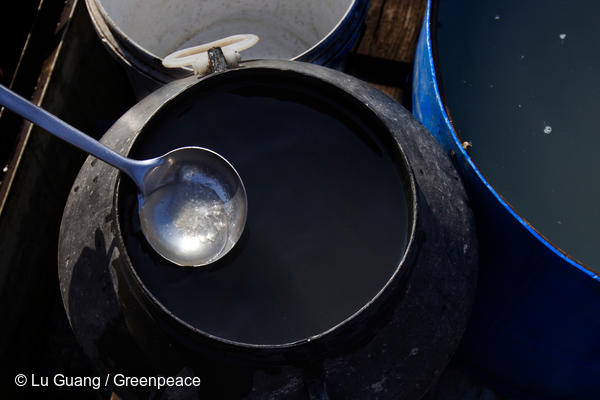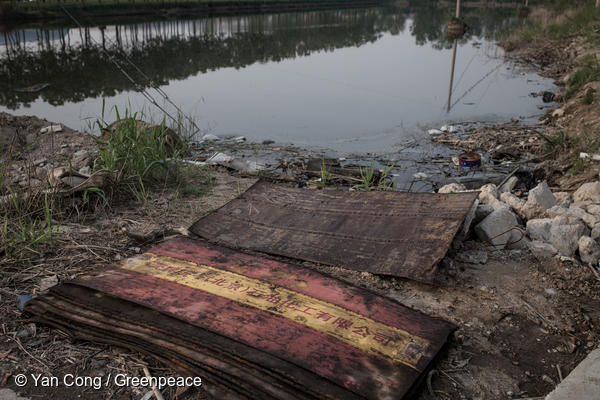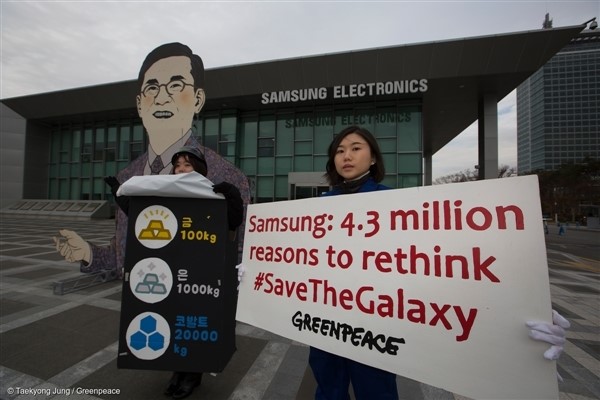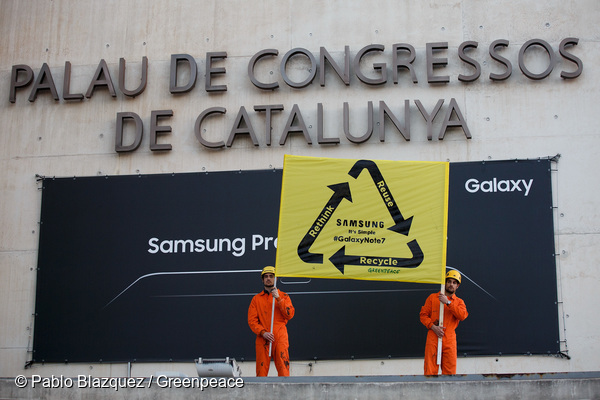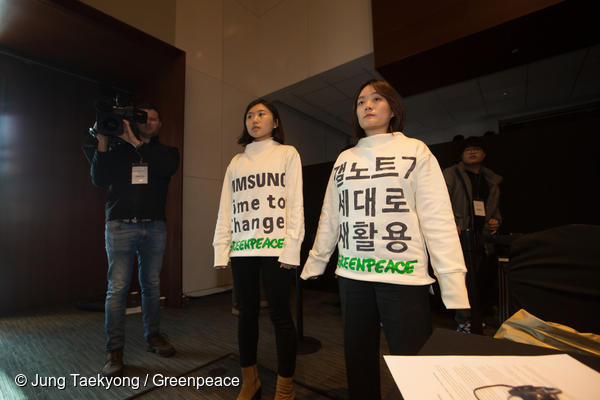-
China’s ban on imports of 24 types of waste is a wake up call to the world – Greenpeace
Beijing, 29 December 2017 - China’s upcoming ban on the import of 24 types of waste will send a wake up call to waste exporting countries and increase pressure to find more sustainable ways to dispose of and recycle waste, as well as tackle the issue at source by reducing the production of plastics and…
-
Rethinking IT: Saving the world, one gadget at a time.
Tech companies are purposely making our devices difficult to repair, creating millions of tonnes of unnecessary e-waste every year. But these campaigners are fighting back. Kyle Wiens from iFixit and Lou Bin from ZEALERfix visited Greenpeace in Beijing to discuss how they’re rethinking the whole concept of IT consumption.
-
5 ways tech companies are making your devices die too soon
Imagine a world where your electronic gadgets would last, or a place where your devices could be easily repaired. Imagine all the money saved!
-
How Repairable is Your Mobile Device?
How repairable is your mobile device? Greenpeace teamed up with iFixit to assess the repairability of best-selling smart devices.
-
Apple, Samsung products among least repairable in new Greenpeace assessment of tech brands
San Francisco, 27 June 2017 - Fairphone, Dell and HP are the only companies that make spare parts and repair manuals available to the public, while products from brands such as Apple, Samsung and Microsoft are among the least easy to repair and upgrade, according to Greenpeace’s latest IT product guide.
-
Nearly half of Chinese provinces miss water targets, 85% of Shanghai’s river water not fit for human contact
Beijing, 1 June 2017 - Fourteen provinces failed to meet their water quality improvement targets during the 12th Five-Year Plan period (2011-2015), a Greenpeace East Asia report released today shows. As of 2015, 85.3% of water in Shanghai’s major rivers was categorized as grade IV or worse, or unsuitable for human contact. In Tianjin, 95.1%…
-
Cocktail of chemicals being released from Lianyungang Chemical Industrial Park – Greenpeace investigation
Beijing, 25 May 2017 – A Greenpeace East Asia investigation at the Lianyungang Chemical Industrial Park in Jiangsu Province has identified 226 organic chemicals in air, soil and water samples taken in the vicinity of the park. Out of this cocktail of chemicals, only one quarter are subject to safety management as “hazardous chemicals” under…
-
You did it! Samsung will finally recycle millions of Galaxy Note 7s
Remember when we did this…
-
Global protests push Samsung to finally recycle Galaxy Note 7 – Greenpeace
Seoul, 27 March 2017 - Samsung today officially published its plan to deal with the 4.3 million Galaxy Note 7 devices produced and recalled worldwide following battery faults. This major win comes after nearly five months of campaigning and global protests addressing the environmental impact of the recall.
-
Samsung fails to share a plan to deal with 4.3 million Galaxy Note 7 – Greenpeace
Seoul, 23 January 2017 - Samsung today announced the results of investigations into what caused the Galaxy Note 7 explosions, but has still failed to publish its plan to deal with the 4.3 million phones recalled worldwide. Greenpeace urges Samsung to immediately show leadership and be transparent about how it will deal with these phones…

